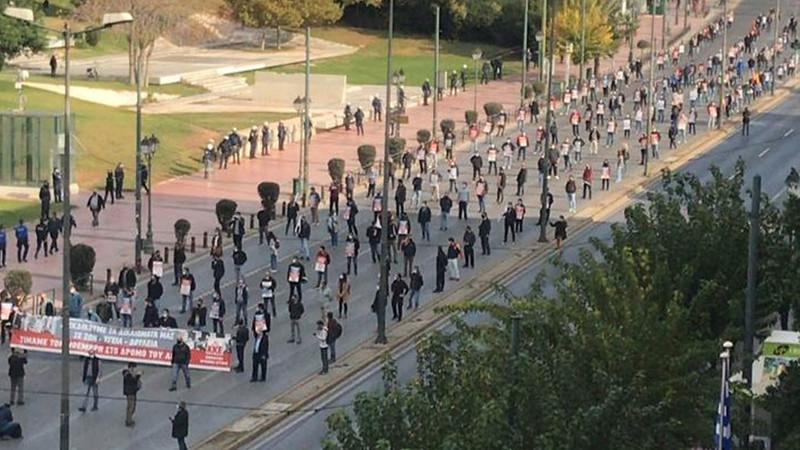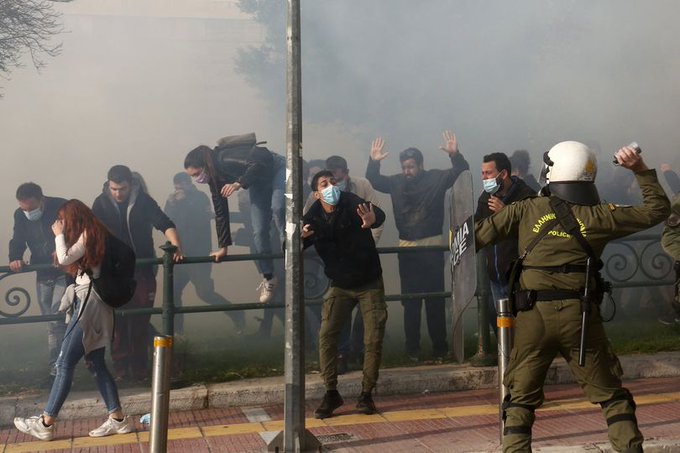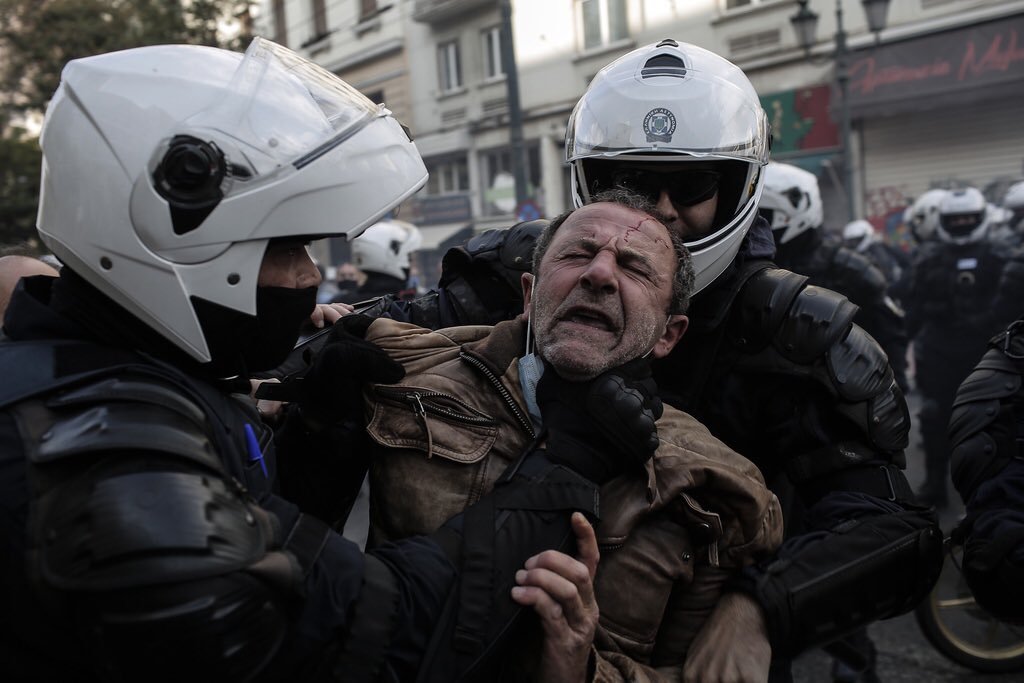On Tuesday 17th November, the Communist Party of Greece (KKE) were met with physical violence from the police force during a demonstration in memory of the 1973 Athens Polytechnic Uprising.
This police’s reaction to Tuesday’s event was significant because the 1973 Uprising itself was one that grew out of the infliction of police brutality upon the Athenian population.
The 1973 Polytechnic Uprising was a student-led and worker-backed retaliation against the former anti-communist and proto-fascist Junta government’s violent rule over Greece.
Funded by the US, the bourgeois military dictatorship of the Junta unleashed a mass of attacks on progressive social movements and imprisoned, tortured and exiled militant comrades from the KKE and KNE (Young Communist League of Greece).
At the Polytechnic Uprising in Athens alone, 40 people were killed by the Junta government and many more were injured.
Since the Uprising, every year there has been a demonstration in remembrance to those who were violently killed and wounded.
The demonstrations end at the US Embassy to highlight the extent of imperialist influence the US had upon Greece during the time of the Junta and Uprising, just like the US has previously had with other governments across the world such as Chile’s former junta government under Pinochet.
This year was no different apart from the KKE’s implementation of social distancing and PPE for all attendees.
Chanting out slogans that were used during the Uprising “USA out – NATO out” and “bread, education, freedom”, it was clear that these words still resonate heavily with the current US and NATO imperialist collusion in contemporary Greek matters.
When approaching the final destination of the US Embassy, the demonstration was met with a road blockade of police buses and police with riot shields.

In a speech in front of the embassy, General Secretary of the KKE Dimitris Koutsoumbas said:
“The messages of the Polytechnic uprising are timely. The slogans “USA out”, “NATO out”, “Bread, education, freedom, work, and health”, continue to deeply move the Greek youth and the Greek people, who are struggling today and every day against an ongoing anti-popular policy.”
“It is unacceptable to use the pretext of the pandemic to take reactionary anti-popular measures to ban the commemoration events of the Polytechnic uprising with the symbolic character that they have this year.”
“The decision of the Greek police following the order of the government, to ban any gathering of more than 3 people, especially today, is unacceptable, anti-democratic, unconstitutional, and denounced by the entire political spectrum of the country.”
“Even ND and KINAL supporters -with the latest having not signed the joint text-denunciation of this criminal, unacceptable and dangerous decision of Mr. Chrysochoidis- denounce this ban.”
“The Greek people, regardless of the insecurity that is cultivated under the responsibility of the government, as it did not take all the necessary measures during these years, are on the side of those who wholeheartedly fight on the path of struggle, in the streets of Athens, in the streets all over Greece. That is why the Polytechnic uprising will live forever.”
However, later in the afternoon after the demonstrators left the US embassy and entered the centre of Athens, police officers suddenly began to attack KKE comrades unprovoked.
Using batons, tear gas, water canons and even stun grenades, the police were prepared to use the maximum amount of force to show the Communists that they weren’t hesitant to uphold the dictatorship of the bourgeoisie.
Indiscriminate about who they attacked, KKE MPs also felt the force of police violence.
Dozens of KKE comrades were arrested, resulting in General Secretary Koutsoumbas calling for all of them to be immediately released, denouncing the attacks as barbaric repression.
Despite many having previously celebrated the Greek government’s banning of the neo-Nazi group Golden Dawn, as is clear from the violent unprovoked attacks on our comrades, they are also eager to repress our ideology.

Tomasz Nowak



